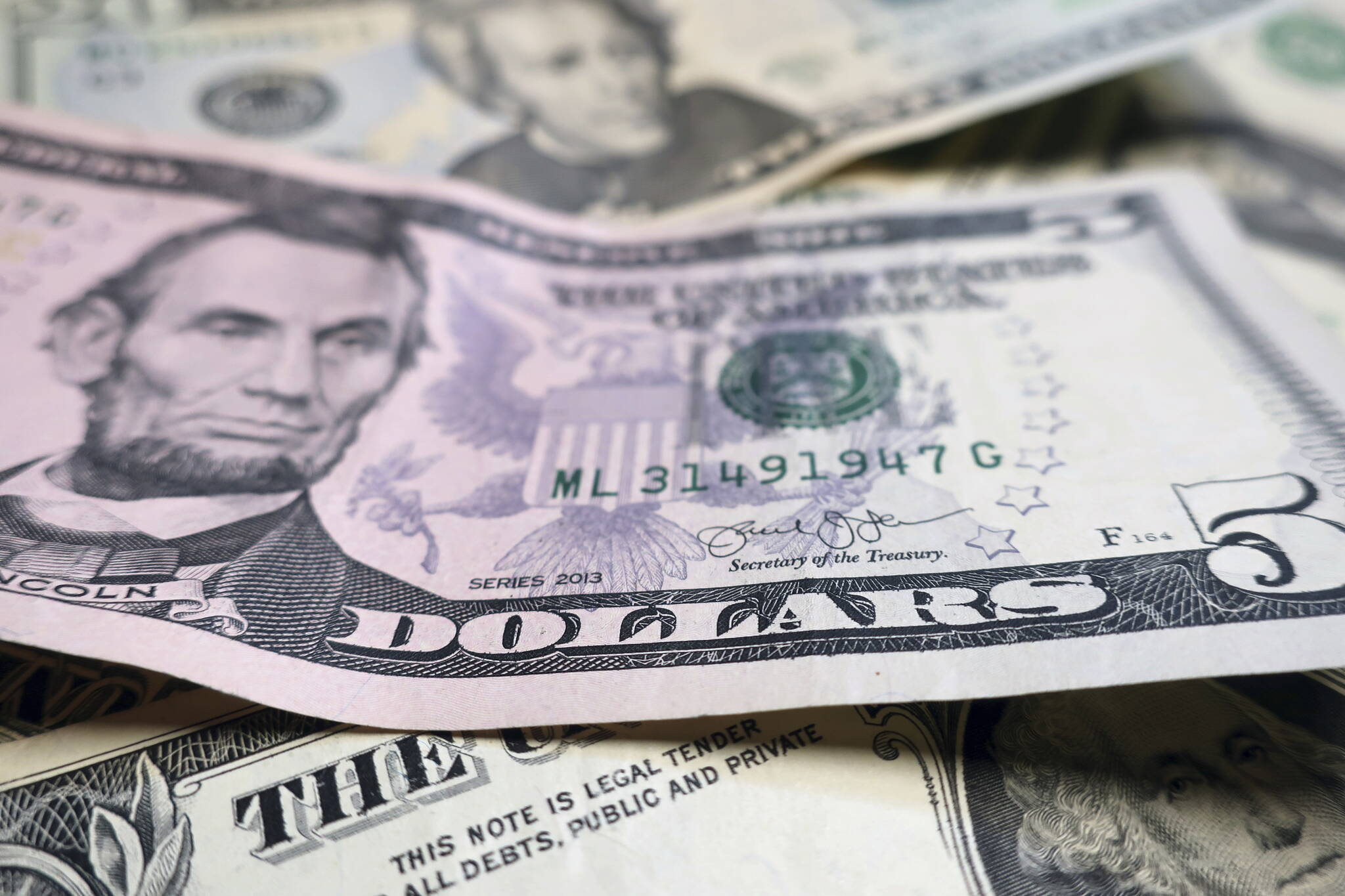Gov. Mike Dunleavy finalized a week of moves by politicians that have been harshly criticized by taking the final required step Monday to allow a 67% increase in state legislative salaries, as well as a roughly 20% increase in his own pay and that of other top executive branch officials.
Dunleavy vetoed a bill rejecting the raises, which was unanimously passed by legislators earlier this month when they weren’t included in the pay hikes recommended in a report by a five-member commission. Dunleavy then appointed an entirely new commission last week — after removing three members and the other two resigned — which during a 15-minute meeting with scant advance notice unanimously added the legislative raises to the report. Legislative leader submitted two of the names Dunleavy appointed.
“The Commission’s amended March 16 report found that compensation for the Executive Branch have not kept up with the 2% annual cost of inflation and recommended new compensation amounts,” Jeff Turner, the governor’s deputy director of communications, wrote in a prepared statement. “Alaska’s 15 state commissioners are all leaders in their career fields and can receive higher salaries in the private sector. They serve out of a strong sense of duty and public service. To continue attracting the best and brightest Alaskans to manage state departments, Governor Dunleavy believes salary increases for commissioners that offset the impact of inflation are appropriate.”
The politicians and commission members were harshly criticized in traditional and social media by many Alaska residents and officials reacting to the raises. Twitter messages such as “give themselves astronomical raises while ripping off the PFD from the people” were typical.
But plenty of officials — including board members replaced by Dunleavy — argued the pay hikes were merited on purely a financial basis (even if some questioned the process used) since the last raise for legislators was in 2010 and for the governor in 2011.
“We are doing our state a huge disservice by not properly compensating these public servants shaping policy for our entire state,” Heidi Drygas, executive director of the Alaska State Employees Association, wrote in a message on her Twitter account. “We want and deserve the best of the best. Not just folks who are independently wealthy, retired, or left to struggle in order to serve.”
However, the leader of the union representing about 8,000 state employees added, “I believe strongly that almost every public servant need a raise. I will work until my dying breath to ensure public employees get paid what they deserve.”
Current salaries are arguably below average for the governor and legislators compared to other states.
Dunleavy’s current salary of $145,000 ranked 28th among governors in 2021 and his new salary of $176,000 — based on a 2% annual increase since the last raise — would rank 10th during that year (other governors’ salaries may now be higher as well).
Legislators will see their existing $50,400 salary — which ranked 12th among states in 2022, but below the $82,258 average among the 10 states including Alaska with full-time legislatures — increase to $84,000. All 60 members except the three residing in Juneau also get $307 in untaxed per diem while in session, which totals slightly more than $37,000 during a 121-day session (per diem is also paid in many other states, at rates slightly to drastically below Alaska’s).
The governor’s veto also means the lieutenant governor’s salary will increase about 10% to roughly $140,000 and department commissioners — whose last increase was in 2015 — about 20% to $168,000.
The raises are automatically enacted unless lawmakers pass a bill rejecting them within 60 days of the commission presenting its report to the Legislature, which due to last week’s meeting means a May 15 deadline. The higher paychecks would begin July 1 for executive branch employees and next January for legislators.
“This is the last hurdle only if the Legislature refuses to act,” wrote Dermot Cole, a longtime reporter who now publishes the blog Reporting From Alaska. “Dunleavy made a mockery of the public process.”
• Contact Mark Sabbatini at mark.sabbatini@juneauempire.com

